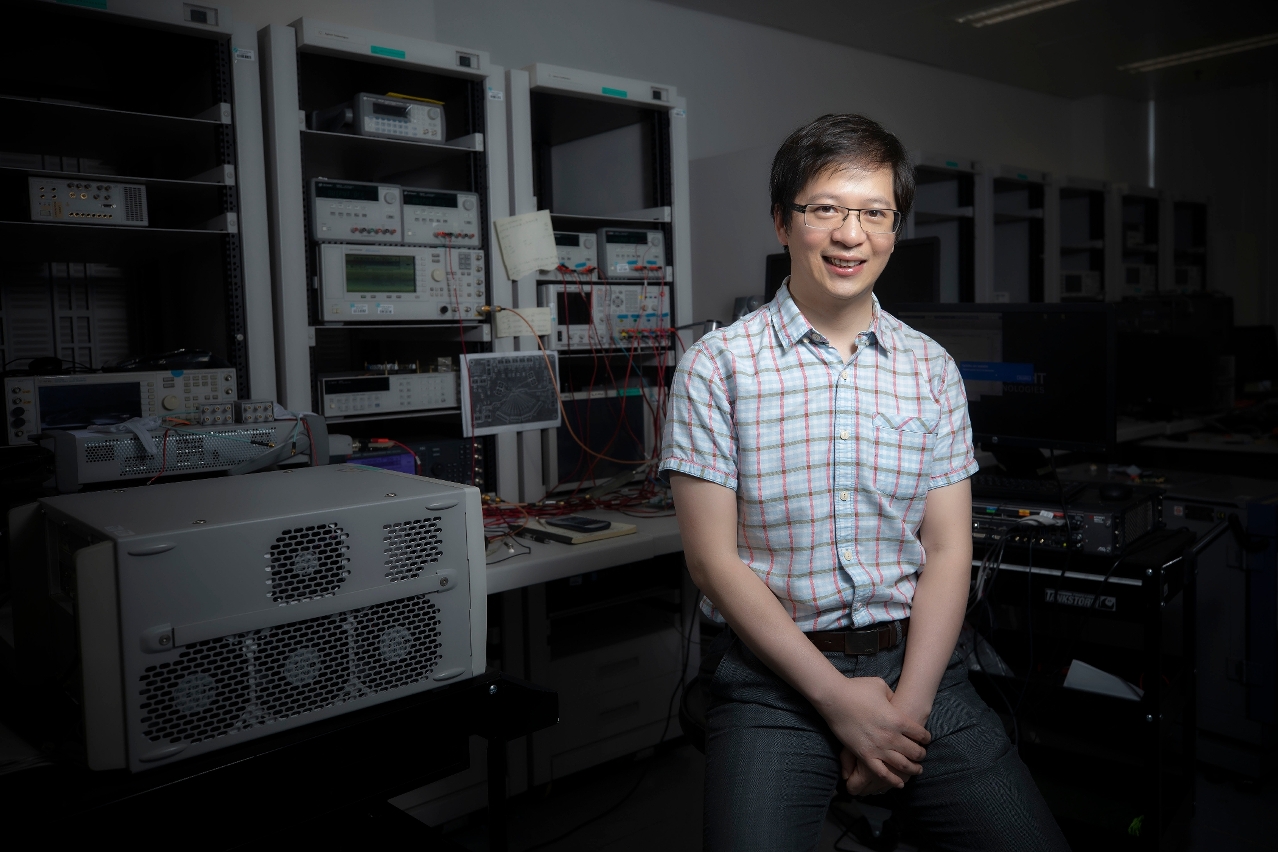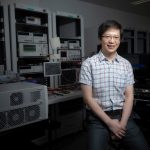 Mak Pui In
Mak Pui In
The list of the recipients of the Xplorer Prize 2022 was released today (15 September). Mak Pui In, interim director of the State Key Laboratory of Analog and Mixed-Signal VLSI of the University of Macau (UM) and professor in the Department of Electrical and Computer Engineering of UM’s Faculty of Science and Technology, has made the list. Of the 50 young scientists who have been recognised this year, three come from Hong Kong and Macao, with Prof Mak being the first and only scholar from Macao to receive this honour.
Over 900 academicians of different countries and more than 30 presidents of prestigious university participated in the nomination, recommendation, and evaluation processes of this year's Xplorer Prize. More than 20 winners of international awards, including Nobel Prize, Turing Award, and Fields Medal, were involved in the nomination process alone. Prof Mak’s award-winning project is ‘Battery-less Intelligent Electronic Chips’, which is expected to solve two technical bottlenecks in the development of massive Internet of Things in China, namely manual battery replacement and batteries not being environmentally friendly. ‘Scientific research in Macao did not have a high starting point, but with the support of the country in various aspects and the frequent interaction with other parts of the Greater Bay Area in the past few years, we have been making rapid progress. We will continue to work hard with a focus on quality over quantity to contribute to scientific innovation in China,’ says Prof Mak.
Born and raised in Macao, Prof Mak is also currently the deputy director (research) of UM’s Institute of Microelectronics. He is a fellow of the Institute of Electrical and Electronics Engineers, a fellow of the Institution of Engineering and Technology, a fellow of the Royal Society of Chemistry, and an overseas expert of the Chinese Academy of Sciences. Prof Mak is an internationally recognised expert in the field of integrated circuits, specialising in radio frequency and analog integrated circuits. He was awarded a commemorative medal for the 70th anniversary of the founding of the People’s Republic of China and was selected as a representative on Macao’s float during the National Day Parade in 2019. In addition, he received a second prize of the State Science and Technological Progress Award in 2011 and the Certificate of Merit from the Macao SAR government in 2005, and has received six prizes in the Technological Invention Award category of the Macao Science and Technology Awards since 2012. Prof Mak is also a co-founder of Digifluidic, UM’s first start-up company based on industry-academia collaboration, which produces digital microfluidic chips and automated nucleic acid analysis systems to facilitate low-cost and rapid food safety screening and disease detection.
The Xplorer Prize was jointly initiated in 2018 by Tencent Foundation initiator Ma Huateng and 14 renowned scientists, including Chen Ning Yang, Rao Yi, Shi Yigong, Pan Jianwei, and Xie Xiaoliang. It is one of the funding schemes with high amount of sponsorships for young talent in science and technology in China. The awards cover ten areas of basic sciences and cutting-edge technology, and 200 winners have been selected over the past four years. As a scientist-led public service award, the Xplorer Prize upholds the mission of ‘looking towards the future, rewarding scholars with potential, and encouraging exploration’ through encouraging young talent to explore new frontiers in science and technology and studying the feasibility of a sustainable and stable input mechanism in society for supporting basic research and talent development.


